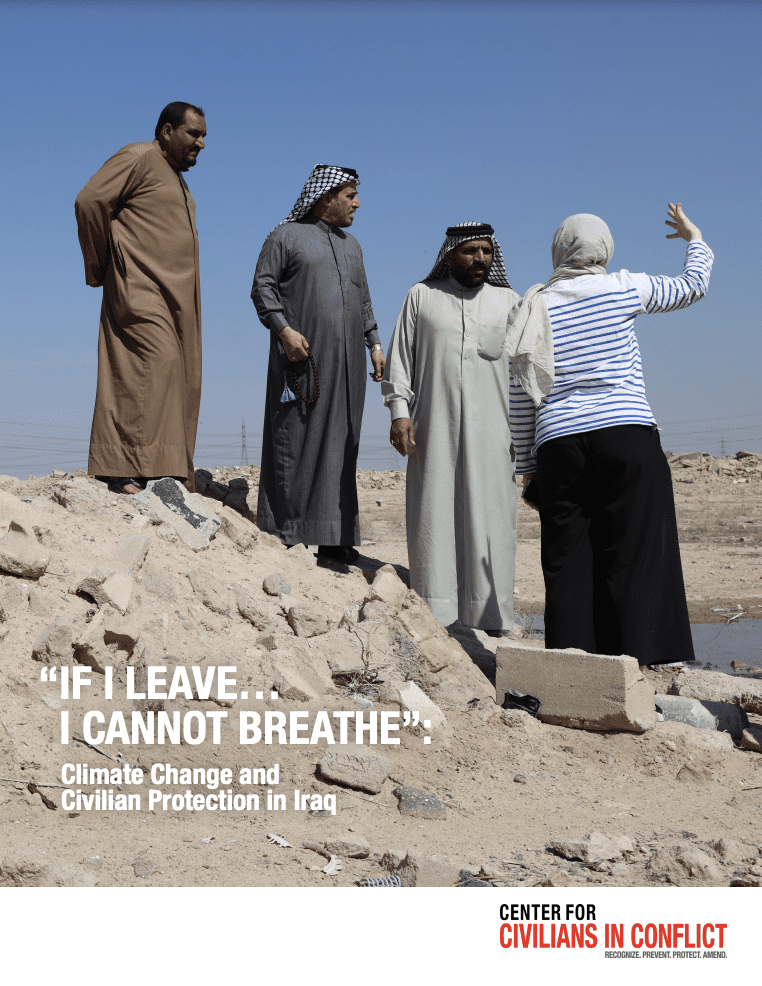Climate change is set to cause unpredictable weather patterns, including droughts and flooding, desertification of once arable lands, and increased water shortages. Over the next thirty years, the temperature across Iraq is expected to rise by an unprecedented 2 degrees Celsius on average, exceeding the point that climate scientists believe is critical for stemming the negative effects of climate change.1 These effects will occur in tandem with low water levels resulting from drought and international resource conflicts, chronic domestic mismanagement of natural resources, and environmental degradation and pollution from myriad conflicts over the past several decades.2 Iraqi society, which is already in a fragile post-conflict state recovering from the high intensity combat operations against the Islamic State (ISIS) in 2014-2017, stands to suffer from intensified outbreaks of violence, increased protection threats, and inter- and intra-communal tensions as a result of the multiplier effect of climate change.3 While much has been written about the first-order effects of climate change and environmental degradation, this paper examines potential conflict drivers and specific security vulnerabilities for civilians and their communities that may result from the immediate effects of climate chang —most notably, changes in livelihoods and migration patterns. The Center for Civilians in Conflict (CIVIC) engaged with communities in Basra and Nineveh governorates through semi-structured interviews in order to understand the impact of climate change for civilians, their protection concerns, and the way in which resource scarcity and environmental degradation threaten security throughout Iraq. In addition, CIVIC spoke with academics, government leaders, representatives of international non-governmental organizations and local civil society organizations, and members of security forces regarding the relationship between climate change and the protection of civilians. In all, CIVIC conducted over twenty interviews and two focus group discussions as well as an extensive literature review to support this research. Basra and Nineveh governorates exemplify pastoral and agricultural societies, which are dependent on river water in the south of the country and a mix of rain and river water in the north. By conducting research is these different locations, CIVIC was able to compare and contrast the experiences of communities in South and North Iraq, and in areas that are rainwater dependent and river water dependent. The result is a broader understanding of the ways that climate change can affect communities. CIVIC also conducted this research with a particular focus on unique vulnerabilities among groups such as women and girls, youth, and minorities. These groups experience conflicts in unique ways and are susceptible to a broader variety of protection threats.

“If I Leave, I Cannot Breathe”: Climate Change and Civilian Protection in Iraq
Created 08/01/2022
Type: Analysis, Report, Uncategorized
Region: Global, Middle East & North Africa
Location: Global
Language: English
Theme: Climate Change & Conflict, Democracy & Governance, General, Human Rights, International Development, Peacebuilding, Protection & Inclusion
You must be logged in in order to leave a comment